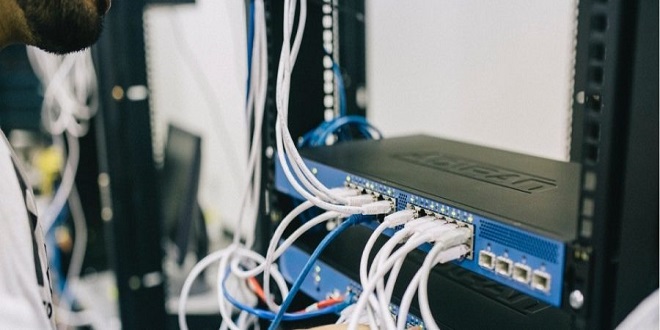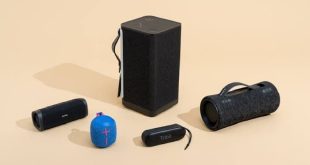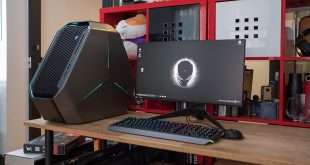A server rack is a standardized frame or enclosure that organizes and securely holds various types of electronic equipment, primarily in data centers and IT environments. This equipment typically comprises servers, network devices such as routers and switches, and other hardware components including UPS (Uninterruptible Power Supplies) systems and storage units.
Advantages of server rack
Server racks offer several advantages essential for managing IT environments, especially in organizations with extensive hardware infrastructure. Here are the key benefits:
- Organization. Computer cabinets organize server and network components neatly, easing management and access. They also facilitate better inventory management and hardware tracking.
- Enhanced cooling efficiency. Server cases consolidate equipment in a single location with designed airflow management to maintain optimal temperatures, reducing overheating risks.
- Space optimization. Server cabinets utilize vertical space efficiently, allowing more equipment in a smaller footprint, crucial where space is limited.
- Improved security. Most computer cases include locking mechanisms to secure the contents, protecting valuable equipment from unauthorized access and theft.
- Scalability. Server racks can expand with additional cabinets or modular components to accommodate new hardware, offering flexible scalability options.
These open frame server racks benefits make it a fundamental component in the efficient, safe, and manageable operation of IT environments.
Data center rack types
Data centers use different types of computer racks to house and protect IT equipment, each designed to meet specific operational needs. Here’s an overview of common rack types in data centers:
- Open frame:
- These cabinets do not have sides or doors, providing maximum airflow for cooling and easy access for frequent equipment changes or maintenance.
- Enclosed:
- Also known as cabinet cases, these feature removable side panels and front and rear doors, often with locks for added security. They help reduce dust and manage airflow with integrated cooling systems.
- Wall-mounted:
- Suitable for smaller setups or limited spaces, wall-mounted racks are ideal for housing network equipment like routers and switches, particularly in areas without large servers or extensive hardware.
- Two-post :
- Also known as relay racks, these consist of two vertical posts with mounting brackets and are used primarily for lighter equipment or network gear.
- Four-post:
- More robust than two-post racks, four-post designs can support heavier equipment and offer adjustable depths to accommodate various server and hardware sizes.
- Shock-mount:
- These racks include built-in shock absorbers to protect sensitive equipment from vibrations and shocks, suitable for mobile deployments or unstable environments.
- Co-location:
- Divided into locked compartments, co-location cabinets securely house equipment from different clients in a shared data center environment, with each compartment featuring its own lock.
- Soundproof:
- Designed to reduce noise from servers and other equipment, soundproof racks are beneficial in open office environments or where noise reduction is crucial.
- Seismic:
- Built to withstand seismic activity and often anchored to the floor, seismic racks are vital in earthquake-prone areas to ensure the stability and safety of IT equipment.
Each cases type is chosen based on data center requirements such as security, space, accessibility, and environmental conditions.
In summary, computer cabinets are essential tools for managing and organizing IT environments, especially within data centers. They offer structured and secure storage for electronic equipment and significantly enhance operational efficiency and safety. Various types of server cases cater to specific needs, such as cooling efficiency, space optimization, and seismic protection. Whether for a small network setup or a large-scale data center, the appropriate server rack type can improve functionality, scalability, and security of IT infrastructure, supporting an organization’s goal to maintain robust and efficient operations.
 Naasongsnews.com
Naasongsnews.com




